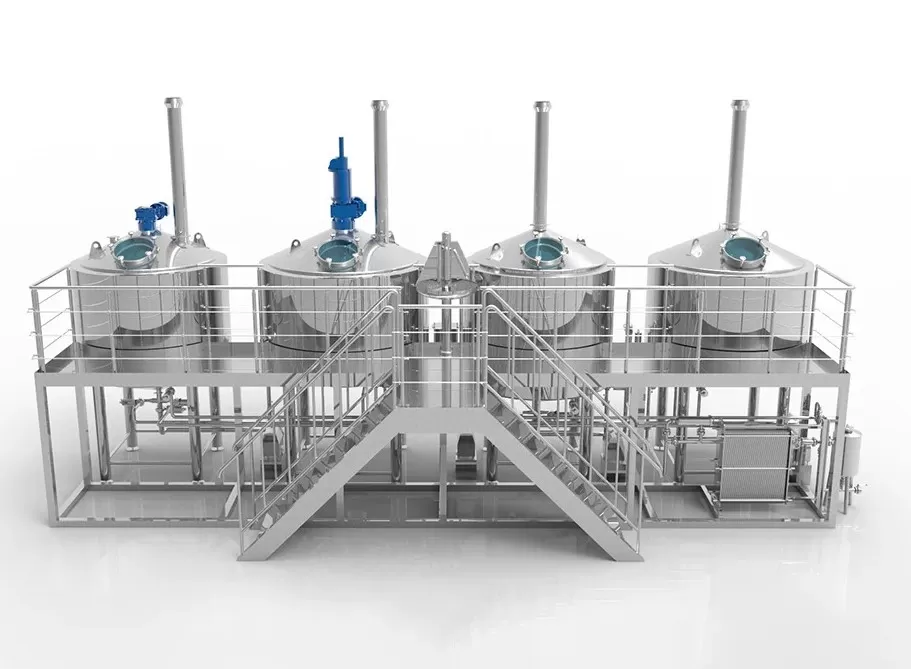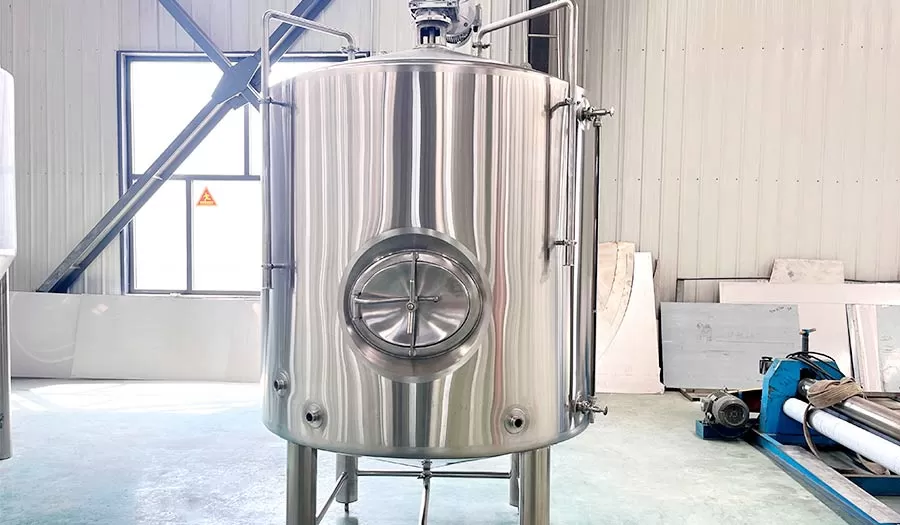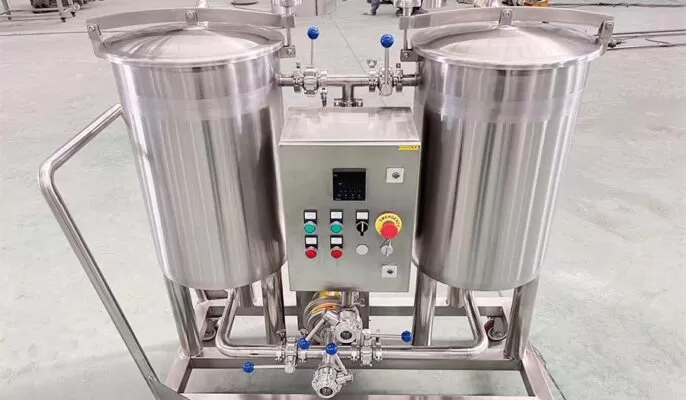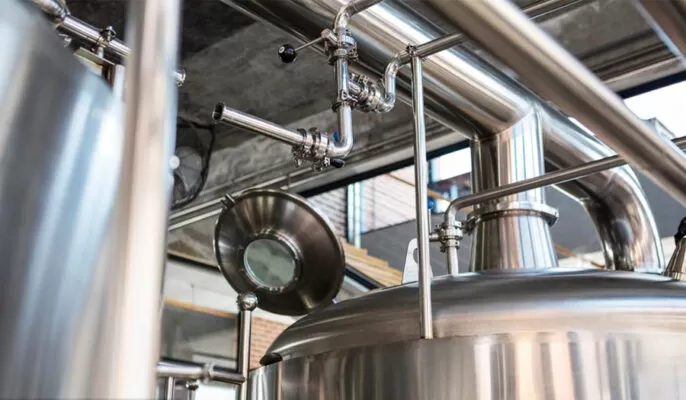The equipment used in professional breweries is vital for producing high-quality beer efficiently and at scale. This guide provides an in-depth look at the major types of pro brewery equipment, their key features and applications, specifications, top suppliers, installation and maintenance, how to choose the right equipment, and a comparison of the pros and cons.
Overview of Pro Brewery Equipment
Pro brewing equipment encompasses all the machinery and tools used in commercial beer production. This includes equipment for malting, mashing, lautering, boiling, fermenting, conditioning, filtering, and packaging beer.
The main goals of pro brewery equipment are:
- Produce consistently high-quality beer batch after batch
- Optimize efficiency and yield
- Minimize labor requirements
- Enable large scale production – from microbreweries to massive breweries
- Ensure sanitation and prevent contamination
- Provide flexibility to produce different beer styles
The choice of brewing system influences the quality, flavor, production volumes, and costs. So brewmasters must carefully select equipment suited for their specific production goals, scale, and budget.
The major equipment types covered in this guide include:
Milling Equipment
- Mills crush malt grains to specific sizes for efficient mashing. Roller mills, hammer mills, and wet mills are commonly used.
Mashing and Lautering Equipment
- Mash tuns mix crushed malt with hot water for sugar extraction. Lauter tuns separate sweet wort from grains.
Brew Kettles
- Brew kettles boil wort with hops for clarification and flavoring. Multi-vessel brewhouses allow precise control over the mashing, boiling, and whirlpooling stages.
Fermentation and Maturation Tanks
- Fermenters convert sugar into alcohol and CO2. Maturation tanks age and condition beer. Stainless steel, aluminum, plastic, and wood tanks are used based on budget and flavor impact.
Filtration Equipment
- Filters remove haze particles for clarity. Plate and frame filters, centrifuges, and membrane filters are typical options.
Carbonation Equipment
- Carbonation systems inject CO2 into beer to achieve desired carbonation levels.
Bottling and Canning Lines
- Automated filling and packaging lines enable efficient high-volume production.
Cleaning and Sanitation Equipment
- CIP systems, sterilizers, washer/fillers maintain hygienic conditions and prevent contamination.
Control and Monitoring Systems
- Brewery control systems automate brewing operations and track key parameters like temperature and density.
This guide provides an overview of the working, features, specifications, and suppliers of all these major pro brewery equipment types.
Pro Brewery Equipment Guide
This table summarizes the main equipment used in commercial breweries along with their functions and typical characteristics:
| Equipment | Description | Key Functions | Characteristics |
|---|---|---|---|
| Roller Mill | Crusher with two or more metal rollers | Crack malt kernels into grist | Durable, efficient, adjustable rollers control particle size |
| Hammer Mill | High speed mechanical crusher | Grind malt into fine grist | Less malt modification, wide particle distribution |
| Wet Mill | Mixes malt with water during grinding | Gelatinizes starches, extracts more soluble extract | Low modification, very fine grist, higher extract efficiency |
| Mash Tun | Insulated stainless steel vessel | Mix milled malt with hot water for mashing process | Steam/hot liquor jackets, rakes, spargers, temperature control |
| Lauter Tun | Vessel with false bottom and spigots | Separate sweet wort from spent grains | Grant design for clear wort separation |
| Brew Kettle | Stainless steel boiling vessel | Boil wort with hops, coagulate proteins | Steam/gas heating, internal calandria, whirlpool design |
| Fermenter | Food-grade stainless steel or plastic tanks | Ferment wort into beer | Conical or cylindro-conical shape, temperature control, airlocks |
| Brite Tank | Pressurized stainless tank | Carbonate, clarify, age beer | Glycol cooling, CO2 injection, filtration attachments |
| Plate Filter | Metal plates compressed in a frame | Remove haze particles | Better clarification, lower extraction than DE filters |
| Centrifuge | Rotating drum using centrifugal force | Separate particles by density | Fast clarification for highly loaded worts |
| Membrane Filter | Polymeric membranes | Remove particles, microorganisms | Fine clarification, sterilization capability |
| Bottle Filler | Automated rotary machine | Fill glass bottles with beer | Fast, consistent fills with minimum foaming |
| Can Filler | Automated volumetric filler | Fill aluminum cans with beer | Counter-pressure fills for minimal DO pickup |
| CIP System | Fixed cleaning heads, tanks, pumps | Clean interior surfaces | Re-circulate hot alkaline and acid solutions |
| Airveyor | Pneumatic conveying system | Transport malt, grains, adjuncts | Dust-free, low maintenance material handling |
This covers the major types of equipment used in professional breweries. The optimal choices depend on production scale, batch sizes, beer styles, quality targets, and budget. Work with reputable brewery engineering contractors to select the right-sized systems for your needs. Prioritize quality, reliability, consistency, and efficiency when investing in pro brewery equipment.
Applications of Pro Brewery Equipment
Different equipment types are suited for specific brewing applications:
| Application | Equipment Used |
|---|---|
| Milling | 2-roller mill, 6-roller mill, hammer mill, wet mill |
| Mashing | Mash tun, stirred mash tun, infusion mash tun, decoction mash tun |
| Lautering | Lauter tun, mash filter, lauter grant |
| Wort Separation | Whirlpool, separation tank, wort centrifuge |
| Wort Boiling | Direct fire kettle, internal boiler kettle, external boiler kettle |
| Wort Clarification | Whirlpool, wort filter, plate filter, DE filter, centrifuge |
| Aeration | Air mixer, oxygenation stone |
| Fermentation | Open fermenters, closed fermenters, unitanks |
| Maturation | Uni-tanks, bright beer tanks, horizontal tanks |
| Carbonation | Carbonation stone, in-line carbonation |
| Filtration | DE filter, plate filter, sterile filter, membrane filter |
| Bottling | Counter-pressure filler, gravity filler |
| Canning | Volumetric filler, overflow filler |
| Kegging | Counter-pressure filler, single head filler |
| Cleaning | Fixed CIP sprayballs, mobile CIP unit |
| Automation | PLCs, SCADA, sensors, valves, actuators |
Select equipment based on production goals, batch size, efficiency targets, beer types, packaging formats, quality parameters, and degree of automation. Consulting with professional brewery engineering companies is highly recommended.
Pro Brewery Equipment Specifications
Technical specifications of equipment influence performance, efficiency, reliability, and costs. Here are some key parameters when selecting equipment:
| Equipment | Key Specifications |
|---|---|
| Mills | Roller gap, roll fluting, drive motor power |
| Mash Tun | Volume, height-diameter ratio, steam jacket rating, rake design |
| Lauter Tun | Volume, aspect ratio, number of sparges, false bottom design |
| Brew Kettle | Volume, height-diameter ratio, heating power, material |
| Fermenter | Volume, height-diameter ratio, cooling area, pressure rating |
| Filler | Fill accuracy, fill height, fill speed, adjusting range |
| CIP System | Pump flow and pressure, tank volume, heater power |
| Piping | Diameter, flow capacity, material (stainless, plastic) |
| Motors | Power, RPM, speed control method |
| Pumps | Flow rate, discharge pressure, impeller type |
| Automation | I/O type and quantity, data reporting, editing software |
Pay close attention to equipment height-diameter ratios, tank aspect ratios, and minimizing piping distances, as these impact wort clarity and quality. Prioritize variable speed drives and advanced process control for a flexible, efficient brewhouse.
Pro Brewery Equipment Suppliers
Reputable suppliers with extensive industry experience should be chosen for critical brewing equipment. Some top global suppliers are:
| Equipment | Leading Suppliers |
|---|---|
| Brewhouses | JVNW, Russo, Specific Mechanical Systems, Craftwerk |
| Tanks | Paul Mueller, Premier Stainless, Systec |
| Mills | Rahr, Schroeder |
| Centrifuges | GEA Westfalia, Alfa Laval |
| Filters | Meura, Pall Corporation |
| Filling | KHS, Krones, GAI |
| Automation | Rockwell, Schneider Electric, Siemens |
| Piping | JVNW, Molded Options |
Pricing depends on size, material, and features. Buying pre-owned equipment can reduce costs for smaller breweries. Leasing options are also available to spread out upfront costs over time.
When requesting quotes, provide detailed specifications like production capacity, beer types, packaging formats, and quality targets. Carefully evaluate suppliers based on reputation, experience, equipment quality, and service.
Installation of Pro Brewery Equipment
Proper installation is crucial for optimizing performance and preventing safety issues or quality problems:
- Engage professional contractors experienced in brewery equipment installation
- Ensure adequate space for safe operation, maintenance access, and expansion
- Level equipment properly, especially tanks and fillers
- Follow equipment manuals and verify electrical, water, steam, glycol, and CO2 hookups
- Pressure test piping and tanks to ensure no leaks are present
- Integrate automation and control systems correctly
- Document equipment locations and connections on P&IDs
- Commission and calibrate instruments like transmitters and gauges
Poor installation can lead to inefficient and inconsistent operations. So invest time upfront to get placement, connections, and integration right based on the brewery design and layout.
Operation of Pro Brewery Equipment
Equipment must be operated carefully per procedures to maintain efficiency and beer quality:
- Follow standard operating procedures for each equipment type
- Monitor key parameters like pressures, temperatures, and flow rates
- Inspect for problems like leaks, vibrations, or blockages
- Perform preventive maintenance per schedules
- Fine-tune settings and parameters to optimize performance
- Adjust processes based on observed variables and beer analysis
- Document results, abnormalities, and corrective actions for each batch
With proper operation aligned to recipes and batches, pro brewing equipment will perform reliably while producing consistent, quality beer.
Maintenance of Pro Brewery Equipment
Preventive maintenance is essential for maximizing uptime and minimizing quality issues:
- Establish maintenance schedules and checklists for each equipment type
- Inspect equipment routinely for leaks, damage, or worn parts
- Re-calibrate instruments and controls periodically
- Test emergency valves, safety devices, alarms regularly
- Monitor vibrations, lubrication, clearance spaces
- Clean and sanitize after each use
- Perform major maintenance like replacing pump seals during planned shutdowns
- Keep maintenance logs to track work history
Following preventive maintenance schedules will extend equipment lifespan and minimize disruptive breakdowns.
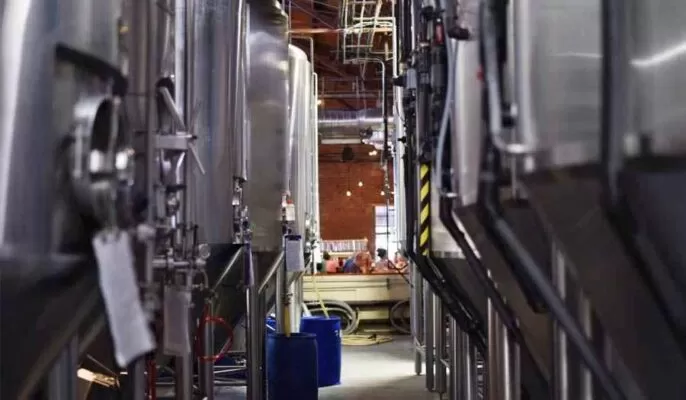
How to Choose the Right Pro Brewery Equipment
Choosing suitable pro brewing equipment for your needs requires consideration of these key factors:
- Production goals – Current and future capacity requirements in HL per year
- Beer types and styles – Lagers, ales, high gravity beers, and special ingredients all impact equipment choices
- Batch sizes – Equipment capacities and features must align with standard batch sizes
- Growth plans – Allow space for expansion or additional units
- Budget – Balance investment costs against production quality and efficiency
- Energy sources – Electric vs gas heating affects brewhouse design
- Water quality – May require pre-treatment equipment
- Process control – Level of automation and real-time monitoring
- Cleaning needs – CIP systems, valves, fittings must enable proper cleaning
- Quality targets – Fine filtration and sterile filtration improve stability and clarity
- Package types – Draft vs bottle vs can filling lines
Work closely with suppliers and contractors to select the right equipment specifications and features to match your brewing goals now and in the future. Prioritize quality, consistency, reliability, efficiency, and flexibility when investing in pro brewery equipment.
Pros and Cons of Pro Brewery Equipment
There are both advantages and limitations to consider for the major equipment types:
| Equipment | Pros | Cons |
|---|---|---|
| Roller Mills | Adjustable crush size, high uniformity | Moving parts require maintenance |
| Mash Tun | Efficient extraction, temperature control | Large volumes needed for big batches |
| Lauter Tun | Good wort clarity, adjustable sparging | Slow lautering can constrain batches |
| Brew Kettle | Customizable configurations, steaming rates | Open kettles risk contamination |
| Conical Fermenter | Compact design, yeast collection | Tall height can challenge cleaning |
| Centrifuge | Fast, efficient clarification | Shear can impact head retention |
| Canning Line | Fast, automated, oxygen-free | High upfront cost, changeovers slower than bottling |
| Automation | Precision, consistency, labor reduction | Complex programming, maintenance of sensors |
Understand both the benefits and drawbacks when selecting among the alternatives for each process stage based on your specific brewing goals and conditions.
FAQs
Here are answers to some frequently asked questions about pro brewery equipment:
Q: What are the most critical pieces of equipment for starting a brewery?
A: The brewhouse (mash tun, lauter tun, and brew kettle), fermentation tanks, and packaging equipment for your chosen format (bottling, canning, kegging line) are the most essential. Invest in quality and reliability for these core equipment types.
Q: Should I buy new or used pro brewery equipment?
A: Buying used can reduce upfront costs but may require more maintenance. Evaluate cost-benefit carefully. Prioritize new for critical components like tanks and packaging.
Q: What size/capacity equipment do I need?
A: Size your equipment based on annual production goals, peak batch frequency, and batch sizes. Allow room to scale up. Consult an engineer to properly size equipment for your needs.
Q: How much space do I need for pro brewery equipment?
A: Allow adequate space around equipment for operation, maintenance access, and cleaning. A rule of thumb is 3x the tank diameter. Consider expansion space.
Q: How do I ensure quality and consistency with pro brewing equipment?
A: Invest in advanced automation like PLCs, SCADA systems, and smart instrumentation to tightly control processes. Calibrate sensors routinely. Document procedures.
Q: Should I use stainless steel or plastic fermenters?
A: Stainless allows higher pressures for carbonation. Plastic like HDPE can scratch and harbor bacteria. Stainless is preferred for consistency.
Q: What are the most important factors when purchasing equipment?
A: Quality, reliability, repeatability, efficiency, and sanitation capabilities should drive equipment selection. Get references and inspect equipment prior to purchasing.
Carefully considering your production goals, batches, beer types, and growth plans will enable informed pro brewery equipment selection and purchasing.
Key Takeaways
- Pro brewing equipment encompasses all machinery used to produce beer at commercial scale. This includes equipment for malting, mashing, lautering, boiling, fermenting, aging, filtering, and packaging beer.
- Equipment choices impact beer quality, consistency, efficiency, labor requirements, and production capacity.
- Critical factors when selecting equipment include production goals, beer styles, batch sizes, space, budget, energy sources, water quality, automation, and quality targets.
- Work closely with reputable suppliers and contractors to size and integrate equipment suited to your brewery’s specific needs and goals.
- Prioritize quality, reliability, repeatability, efficiency, and ease of cleaning when investing in pro brewery equipment.
- Allow space for future expansion and growth when laying out equipment.
- Proper installation, operation, and preventive maintenance procedures maximize uptime and minimize quality issues.
- Record equipment specifications, maintenance logs, operating parameters, and batch results to track performance.
- Consider pros and cons of alternatives for each process stage based on individual needs and conditions.
Investing in the right pro brewery equipment establishes a solid foundation for efficient production of consistent, high quality beer at the required capacities.



